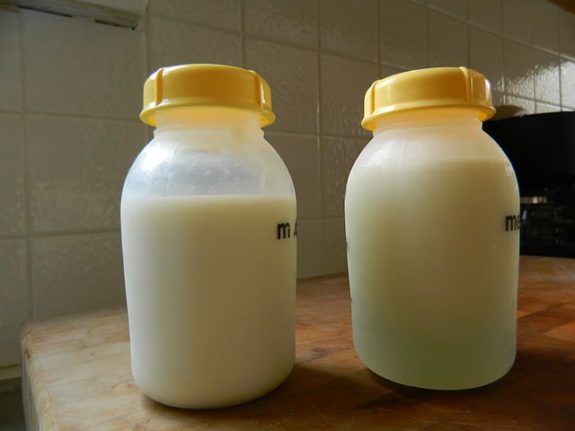
April 19, 2017; Babble
“Breast is best” for preemies, but how can families with few resources access human milk for their premature babies when they can’t produce it? New York recently joined five other states in allowing the use of Medicaid to access breast milk from milk banks, which advocates called a victory for NICU babies and their families.
For those not versed in all things breast milk (a.k.a. liquid gold), here’s a quick primer: although there has long been debate over the short- and long-term benefits of breast-feeding, breast milk can be especially beneficial to sick and premature infants by helping growth and preventing disease, according to the American Academy of Pediatrics. Breast-feeding rates continue to rise, and new for-profit and nonprofit milk banks have been popping up across the country over the past two decades, sometimes creating controversy relating to compensation structures and safety, not to mention ethics. The Human Milk Banking Association of North America, established in 1985, sets standards for 30 nonprofit donor banks across the U.S. and Canada with input from the medical community.
While milk banks are making more pasteurized donor human milk (PDHM) available to infants, there’s a cost. You won’t be surprised to learn that even nonprofit milk banks must charge fees to cover costs of operations, donor screening, and distribution. The New York Milk Bank, for example, charges $4.50 per ounce. The gap led to legislation that would assist low-income families with the cost. Supporters of the measures argue that the increased use of PDHM would save the state money by decreasing hospital stays and reducing complications.
Stat News examined the issue last year, highlighting the inequality across income levels:
At “safety-net” hospitals where more than 75 percent of patients are on Medicaid, only 13 percent routinely make donor milk available to premature babies in intensive care, according to a 2012 survey.
Reporter Olivia Campbell also noted that “New York’s law could be the most far-reaching, since it provides for such milk for as long as it’s medically necessary, no matter the infant’s age.”
Supporters say it will produce a net savings for Medicaid: According to the New York branch of the American Academy of Pediatrics, giving the state’s 3,500 eligible infants donor human milk will save $10.5 million in direct hospitalization costs.
Sign up for our free newsletters
Subscribe to NPQ's newsletters to have our top stories delivered directly to your inbox.
By signing up, you agree to our privacy policy and terms of use, and to receive messages from NPQ and our partners.
While the legislation is certainly a feel-good measure, not every state has passed proposed legislation, and the classification of breast milk as a tissue or medicine can also make regulation more complicated, according to Stat News.
A bill in Washington was rejected as unnecessary, based on “a lack of current evidence on the safety and efficacy of donor human milk,” and recommended that hospitals negotiate directly with insurance carriers. In Maryland, the legislation was discouraged when it was found state Medicaid coverage treated food and tissues differently, which might make execution too difficult. And, with Medicaid expansion and payments cut under the now-defunct GOP health care bill, it’s unclear how the families who need the support the most will fare.
With breast-feeding back in vogue and breast milk legislation still a patchwork, there is a burgeoning underground market for breast milk, causing consternation, according to the Columbia Basin Herald:
Increasing numbers of women who produce more breast milk than they need are handing it over—or selling it—for others to use… No one knows exactly how much of this excess milk is donated or sold, but the volume is increasing. Pauline Sakamoto, executive director of the Mothers’ Milk Bank and former president of the Human Milk Banking Association of North America, an association of nonprofit milk banks in the U.S. and Canada, said her organization’s affiliated banks distributed about 4.4 million ounces of human milk to hospitals last year, up from less than half that amount as recently as five years ago…
Physicians, regulators and others ask: Should sickly, premature babies get access to this milk before healthy ones? Should women be paid for their milk—even if it might lead some to deprive their own infants? Should greater safeguards be required to ensure the safety of the supply?
But the FDA has expressed concern about milk-trading websites, warning consumers that the milk offered there carries an increased risk of contamination by drugs or disease, including HIV. The agency further urges mothers not to feed their infants donated milk acquired from other individuals or over the internet, also because of such safety risks.
Should the FDA intervene? It’s likely that the current administration’s focus on deregulation means states—and nonprofit milk banks—will continue to take the lead on expanding access to breast milk.—Anna Berry













